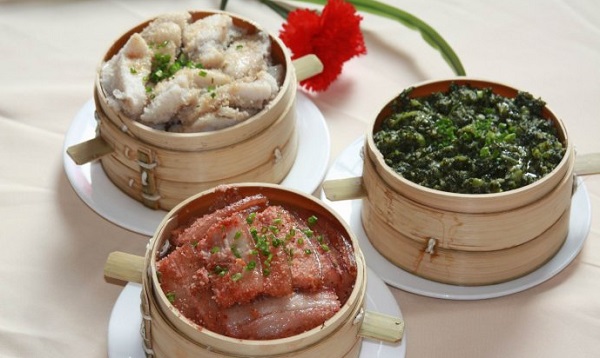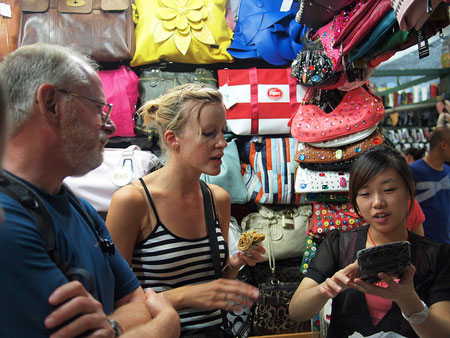10 Essential Chinese Expressions You Ought to Know
People who seek to travel to China might be better served if they learned some local language phrases. Taking time to learn a variety of expressions can help them interact on a more personal level with citizens they meet. It can increase the odds of having a meaningful cross cultural exchange by attempting to engage Chinese citizens in their own language.
The phrases presented below are things that might be useful during travel within China. Various phrases reported by others are presented below in pinyin, the Romanization of Standard Chinese. Someone planning on learning more about Mandarin should take time to further study pronunciations and proper spellings before traveling to China. By researching more in depth and with language tools available, they can get their point across.
1. I speak English. (wŏ shuō yīngwén.)

When meeting a new person it can be engaging to ask them if they speak the language you are currently reading. They might have knowledge of English and can either help you find out more information or carry on a conversation. This can be an opening for making friends. The chance of finding English speakers can be higher within cities opposed to more rural areas.
2. What rooms do you have available? (nĭ yŏu shénme yàng de kòngfáng?)
If you are not traveling via a group tour this type of phrase might be necessary. You will already have accommodation booked even if you are a solo traveler due to visa requirements. However, if you extend your trip or change schedules you might need a new place to stay.
3. I am lost. (wŏ mílù le.)
This phrase can come in handy when you are in a new area and have lost your bearings. You can approach a shopkeeper or passing citizens to ask for directions. They might be able to assist you in finding the way to get to where you need to be. This also could be an opening that allows a conversation while they show the way.
4. What is today’s special? (jīntiān yŏu shénme tèbié cài ma?)

Exploring the culinary side of China is very important to most visitors. There are a large number of different flavors and local cuisines found through China. Getting to know a phrase that can help you order food could be a step in the right direction for sampling all the different things China has to offer. Instead of sticking to what you think is safe you can open yourself up to trying a new dish. Tasting what a restaurant cooks as a specialty can allow you to hopefully, try a superior dish.
5. Is there a restroom nearby? (fù jìn yǒu méi yǒu xǐ shǒu jiān?)
Being able to locate a bathroom to wash up is a prudent idea. If you are traveling long distances you might be entering different train or bus facilities and can’t readily identify where the restrooms are. Having this phrase available might allow you to approach an employee and get the right directions.
6. How long do I have until departure time? (hái yǒu duō jiǔ qǐ fēi?)
Traveling from region to region within China will involved detailed time tables. Trains are a common way to get from one city to another and knowing how to ask for the departure time might keep a tourist from missing their transportation. Most likely a traveler will have ticket with the printed time on it but it still can be a good idea to double check with someone to make sure it is correct.
7. Where is the ATM? (qǚkuănjī zài năr?)
Having access to travel funds can ensure a smooth trip. It can be beneficial to know how to locate the nearest ATM to get money for your travels. Most travelers will arrive with cash on hand but still have ATM cards as a backup. Banks are located throughout China. It might be easier to get cash when in larger cities. If the visitor plans to travel to more remote regions they should have adequate funds on hand before they arrive.
8. How are you? (nǐ hǎo ma)
Having a phrase to express common courtesy can be essential for giving a good impression. Inquiring into someone’s state can be an icebreaker to talk further and should be part of the phrase list.
9. How much is this piece? (zhè jiàn duō shǎo qián?)

There will be lots of opportunities to shop for visitors to China. Various cities will have more opportunities to get modern items that have the prices clearly marked. Some people will enjoy going into more local markets to look for souvenirs or such things. In these environments the prices of the items might not be marked and it is necessary to ask the shopkeeper what they are charging for the item.
10. How may I address you? (zěn me chēng hū nin)
If a traveler has a chance to get to know a local, it is polite to ask their name. This is an opportunity to make a friendly connection. Getting to know the people one meets while traveling can be as interesting as the sights someone’s sees. Taking time to make friends can also give a traveler a unique perspective into another person’s life.
Learning the local language doesn’t have to be the priority of a trip to China. However, people that a traveler meets might be more receptive to someone who has tried to learn their language. In return the local citizen can try out their language skills. While either person might not be totally fluent they have made attempt to put themselves in the other shoes. This kernel of goodwill can be a stepping stone to further more interesting experiences. Someone attempting to use phrases presented above should further consult other resources to learn proper pronunciation and spellings to get the most out of their experience.

